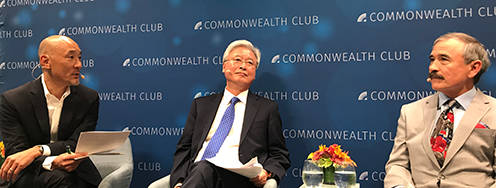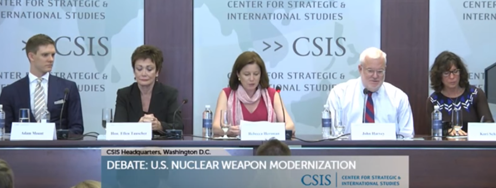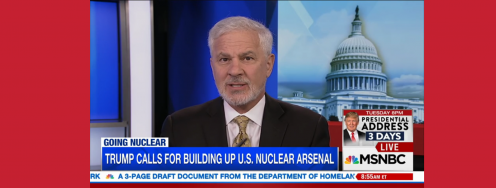Need cash? Cut the nuclear weapons budget
PRESIDENT-ELECT Barack Obama needs money. "To make the investments we need," he said last week, "we'll have to scour our federal budget, line by line, and make meaningful cuts and sacrifices, as well."
There is no better place to start than the nuclear weapons budget. He can cut obsolete programs and transfer tens of billions of dollars per year to pressing conventional military and domestic programs.
Transfers to domestic programs will help jumpstart the economy. Military spending provides some economic stimulus but not as much as targeted domestic spending. This is one reason Representative Barney Frank has called for a 25 percent reduction in military budgets that have exploded from $305 billion in fiscal year 2001 to $716 billion in fiscal year 2009, including the $12 billion spent every month for wars in Iraq and Afghanistan.
We must, of course, spend what we need to defend the country. But a good part of the military budget is still devoted to programs designed for the Cold War, which ended almost 20 years ago. This is particularly true of the $31 billion spent each year to maintain and secure a nuclear arsenal of almost 5,400 nuclear weapons, with 1,500 still deployed on missiles ready to launch within 15 minutes.
We can safely reduce to 1,000 total weapons, as recommended by Senator John Kerry and other nuclear experts. That reduction would save over $20 billion a year, according to the Center for Strategic and Budgetary Assessments.
The reductions could be done without any sacrifice to US national security, particularly if the Russians did the same (as they indicated they'd be willing to do) either by a negotiated treaty or the kind of unilateral reductions executed by former presidents George H.W. Bush and Mikhail Gorbachev in 1991.
The arsenal of 1,000 warheads could be deployed on 10 safe and secure Trident submarines, each with enough weapons to devastate any nation. In total, the smaller, cheaper arsenal would still be sufficient to destroy the world several times over. Further reductions would generate further savings over time.
Additional savings are available in the related anti-missile programs created during the Bush administration. Total spending is now $13 billion a year - up from $4 billion in 2000. Bush and former secretary of defense Donald Rumsfeld exempted the agency from the normal checks of Pentagon tests and procurement rules in an effort to institutionalize the program, locking in the next president. Obama will inherit half-built facilities in Alaska and California, along with plans to build new sites in Poland and the Czech Republic, but no assurance that the interceptors actually work -and a huge bill to pay. If Obama were to continue the program as is, he would spend an estimated $62 billion through 2012.
In a congressional review of these programs, Representative John Tierney of Massachusetts concluded, "Since the 1980s, taxpayers have already spent $120 to $150 billion - more time and more money than we spent on the Manhattan project or the Apollo program, with no end in sight." Tierney recommends refocusing the program to concentrate on defenses against the short-range weapons Iran and other nations currently field, and restoring realistic testing and realistic budgeting. Doing so could save $6 billion or more a year.
Further savings can be found by stopping a planned expansion of nuclear weapons production facilities pushed by contractors and some government nuclear laboratories. The facilities would cost tens of billions of dollars and produce hundreds of new nuclear warheads. Secretary of Defense Robert Gates strongly backs the expansion. In a direct challenge to Obama's plans to reduce nuclear weapons and ratify the Comprehensive Test Ban Treaty, Gates said in October, "there is absolutely no way we can maintain a credible deterrent and reduce the number of weapons in our stockpile without either resorting to testing our stockpile or pursuing a modernization program." Obama will have to back him down or pony up billions to pay Gates's nuclear tab.
What will the new president do? He comes to office with a comprehensive nuclear policy that could save billions. Obama will now have to show that his new security team will implement the change he promised, not their own parochial agendas.



